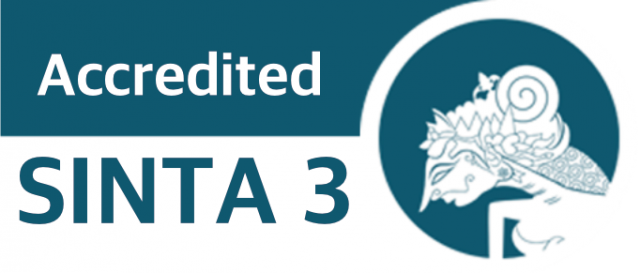Yang Terbuang, Yang Membangun: Studi Perubahan Sosial Di Kecamatan Waeapo Kabupaten Buru Oleh Eks Orang-Orang Buangan 1969-1979
DOI:
https://doi.org/10.24114/antro.v7i1.24482Keywords:
1969 Former Exiles, Waeapo, Social Change, Shifting Cultivation, Permanent Agriculture.Abstract
Buru Regency is one of the rice suppliers in Maluku Province.The achievements of Buru Regency as Maluku rice supplier cannot be separated from its history as a place for people who were exiled in 1969. The presence of these former people has an influence on social change in Buru Island. Located in Waeapo district, Buru regency, this qualitative research was conducted to explain social change in Waeapo, Buru by the former exiles. The results showed that before the former exiles arrived at Buru Island, the Waeapo was dominated by forests, where the local people practiced swidden agriculture. The presence of former exiles in 1969 changed the landscape of Buru from forest to paddyfields by means of forced labor. The forced labor and introduction of new agricultural system are patterns inherited from the colonial government. Nevertheless, in Buru, the harvest was consumed by the exiles instead of handed over to the government as a custom enforced by the colonials. The change in land use eventually changed the shifting cultivation system to permanent agriculture with the lowland rice farming system which is commonly practiced in Java. Ex-exiles were the people used by the New Order government to carry out development in remote areas in the 1969-1979 era until the change of Buru™s landscape, source of staple food, and cultural diversity exist in Waeapo..References
Ashcrof, B., Griffiths, G., Tiffin, H. (2007) Post-Colonial Studies: The key concepts (Second edition). New York: Routledge.
Badan Pusat Statistik Kabupaten Buru. (2018) Statistik Daerah Kabupaten Buru 2018. Namlea: BPS Kabupaten Buru. ISBN 978-602-0985-91-6.
Barjiyah, U. (2010) Orang buangan (Bannelingen) pada perkebunan Pala di kepulauan Banda. Paramita 20 (1), 1-10.
Hargyono, S. (2016) Buru Island: A Prism of the Indonesia New Order. Equality Development and globalization Studies Working Paper 36. Illinois: Northwestern University. https://www.edgs.northwestern.edu/documents/working-papers/buru-island.pdf
Heyd, T. (2008) Cultural responses to natural changes such as climate change. Espace population sociétés 2008 (1), 83-88. https://journals.openedition.org/eps/2397
Loomba, A. (2000). Kolonialisme atau Pascakolonialisme. Yogyakarta: Pustaka Promethea.
Mansyur, S. (2014). Jejak VOC Kolonial Belanda di Pulau Buru (Abad 17“20 M). Amerta 32 (1), 29-47. https://doi.org/10.24832/amt.v32i1.376
Martayana, I.P.H.M. (2019) Poskolonialitas di negara dunia ketiga. Candra Sangkala 1(2): 1-22.
Moleong, L.J. (2012). Metodologi penelitian kualitatif. Bandung: Remaja Rosdakarya.
Mustikawati, A. (2018) Adaptasi lingkungan masyarakat pendatang dalam cerita rakyat Bontang. Aksara 30, (1) 51-74.
Pagiola, S. (2000) Land use change in Indonesia. https://econwpa.ub.uni-muenchen.de/econ-wp/othr/papers/0405/0405007.pdf
Setiawan, H. (2004) Memoar Pulau Buru. Magelang: Indonesiatera.
Sianipar, G. (2004) Mendefinisikan Pascakolonialisme? Pengantar Menuju Wacana Pemikiran Pascakolonialisme. Dalam M. Sutrisno & H. Putranto (Editor). Hermeneutika Pascakolonial. Yogyakarta: Kanisius.
Soekanto, S. (1982) Sosiologi: suatu pengantar. Jakarta: Rajawali.
Yuliani, E. L., De Jong, E.B.P, Knippenberg, L., Bakara D. O., Salim, M. A., Suderlan, T. (2018) Keeping the land: indigenous communities struggle over land use and sustainable forest management in Kalimantan, Indonesia. Ecology & Society 23(4), 2-10 https://doi.org/10.5751/ES-10640-230449
www.burukab.go.id 2018
Downloads
Published
How to Cite
Issue
Section
License
Copyright (c) 2021 Anthropos: Jurnal Antropologi Sosial dan Budaya (Journal of Social and Cultural Anthropology)

This work is licensed under a Creative Commons Attribution 4.0 International License.

This work is licensed under a Creative Commons Attribution 4.0 International License
Authors who publish with this journal agree to the following terms:
- Authors retain copyright and grant the journal right of first publication with the work simultaneously licensed under Creative Commons Attribution 4.0 International License that allows others to share the work with an acknowledgement of the work's authorship and initial publication in this journal.
- Authors are able to enter into separate, additional contractual arrangements for the non-exclusive distribution of the journal's published version of the work (e.g., post it to an institutional repository or publish it in a book), with an acknowledgement of its initial publication in this journal.Penulis.
- Authors are permitted and encouraged to post their work online (e.g., in institutional repositories or on their website) prior to and during the submission process, as it can lead to productive exchanges, as well as earlier and greater citation of published work (Refer to The Effect of Open Access).


